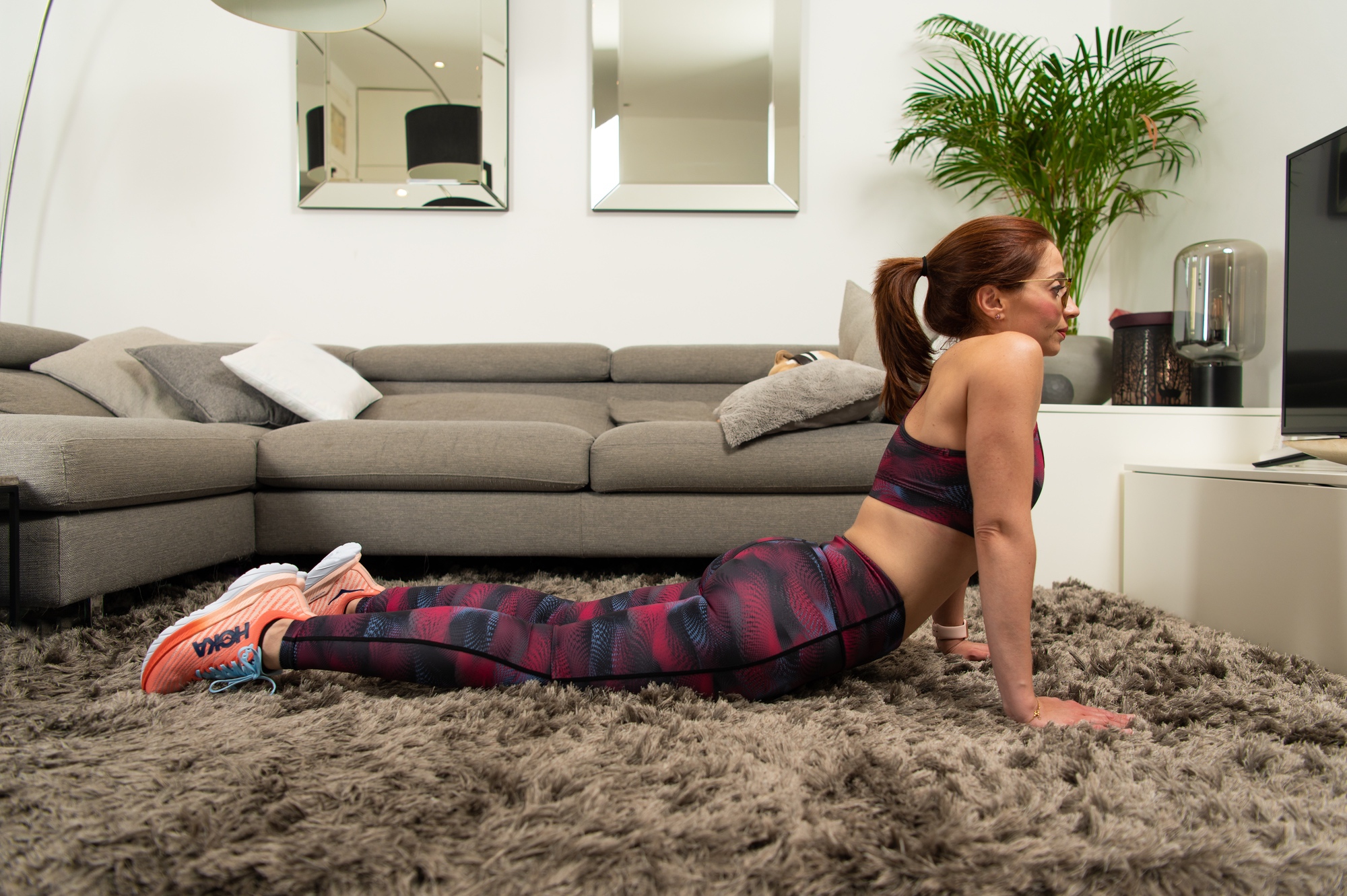Loving Your Body: Overcoming Body Dysmorphia and Embracing Your True Self
Today’s pressure to attain the ‘perfect’ body image is overwhelming for both men and women. The relentless influence of media and advertising perpetuates unrealistic beauty standards, even sometimes leading to body dysmorphia – a condition characterised by an obsessive preoccupation with perceived flaws in one’s appearance.
Approximately 1.7% to 2.9% of the general population are affected by body dysmorphia. The disorder usually develops during adolescence, and women are slightly more prone to be affected than men.
In this blog, nutritionist and wellness coach, Corinne Zaffarese Elbourne, explores the detrimental impact of societal pressure, the link between body dysmorphia and obsessive exercise, and, most importantly, how to overcome negative self-image and embrace body acceptance even during the weight loss process and after losing weight.
The Influence of Media and Advertising on Body Perception
Airbrushed models and celebrities with flawless bodies dominate magazines, television shows, social media platforms, and billboards. So, it’s no surprise that the media and advertising industries play a significant role in shaping body perception. The constant bombardment of images depicting the ‘ideal’ body creates an unattainable standard of beauty.
This unrealistic portrayal can damage self-esteem, especially for individuals who have achieved weight loss but still struggle with body dysmorphia. It’s been going on for too long – so now’s the time to challenge these distorted standards and celebrate the uniqueness of our own bodies.
Overcoming Negative Self-Image and Building Self-Esteem
Unravelling the effects of body dysmorphia on your thoughts and feelings is the first step in reshaping your self-image. Start by challenging negative beliefs and filling that space with encouraging self-talk. This helps create a mindset of self-acceptance and empathy.
Quick tip: A great practice here is to stop yourself in your tracks when you start doubting yourself. One way to do this is to apply the 54321 principle by Mel Robbins. It’s simple, as soon as you catch yourself criticising your body or saying mean words about yourself, take a step back, and count down from 5 with the intention that as soon as you hit 1, you’ll stop those negative thoughts and move on to something else.
Mindfulness, a powerful tool within your reach, can bring about a newfound appreciation for your body. It helps spotlight even small victories, emphasising your body’s resilience. Progress is best appreciated in substantial strides, not minimal measurements.
Quick tip: Measure your weight loss by taking notice of how your clothes fit rather than using a weighing scale. And remember, each time you increase the distance of your daily walk, even if only by a short amount, you’re making progress and you should celebrate the win!
Professional Support vs Unsolicited Advice
Walking this path doesn’t mean going solo. Consider seeking professional guidance or joining forces with those on a similar journey. A professional will offer evidence -based knowledge to give you the support and encouragement you need, and someone on a similar journey will have a deep understanding of what you’re going through. Your journey to self-esteem is a collective effort, not a lone mission.
As for unsolicited advice, a polite nod is enough; keep your focus on those who genuinely support your wellness goals. You may have noticed that unsolicited advice often comes from loved ones. Ignoring this well-meaning advice is vital if you wish to stack on track, but it’s not always easy!
Quick tip: Respond to unsolicited advice with a polite but firm statement, such as “I hear your point of view but this time round I am determined to succeed and with the professional help I am getting I do not feel deprived but rather very healthy and well-nourished, which is making me feel happier, and this is very important to me.”
The Link between Body Dysmorphia and Obsessive Exercise
When it comes to fitness and exercise, body dysmorphia can manifest as compulsive exercising or overexercising. Overexercising often arises from the belief that more exercise will correct perceived body flaws. However, it’s important to note that exercise, when done excessively, can lead to serious physical and mental health issues. Physically, overexercising can cause injuries, hormonal imbalances, a decrease in immune function, and other health problems. Mentally, it can contribute to anxiety, depression, and worsen body dysmorphic disorder symptoms. It’s critical to strike a balance in exercise routines and have a realistic, healthy perception of your body.
Full disclosure, I suffered from body dysmorphia, and it took me years to realise it! I used to overexercise and undernourish myself when I was younger. But after studying nutrition, I could use specific tools to get myself healthy and feed myself well, not only to look good but also to feel good.
Even today, accepting my body with its imperfections remains a struggle, especially since becoming a mother. Nonetheless, I maintain constant awareness of this challenge and actively practice self-compassion. I remind myself that I am doing my best, maintaining a healthy weight, and possessing a strong body – these are the aspects that truly matter. Tip: Think carefully about your goals! If your goal is to lead a healthy and active lifestyle it should not be confused with getting a six-pack because these are different goals.
Quick case study: ‘Jay’, a client of Miverbo’s, was grappling with body dysmorphia and obsessive exercise. We refocused on his personal fitness journey, measuring progress in strength and stamina, not societal standards. This simple shift helped Jay break free from body dysmorphia’s restricting cycle. His story stands as a reminder that the run towards self-acceptance beats any treadmill.
Adopting a Balanced Approach
At Miverbo, our ethos centres around balance – fuelling your body and nurturing your mind. Pursuing an active lifestyle isn’t just about the physical transformation; it’s about fostering an inner wellbeing that shines from within. After all, feeling fantastic trumps just looking it! We advocate for the marriage of healthy habits and positive emotions, a union that breeds enduring motivation.
Quick tip: Spark self-love by finding an activity that you truly enjoy. It could be yoga, a sport, such as tennis or football, long strolls out in nature, or home workouts. Remember, it’s your journey towards building a rewarding relationship with your body, so you get to decide which direction to take!
Body Acceptance and Self-Love
Body dysmorphia, influenced by societal pressures and unrealistic beauty standards, doesn’t discriminate, affecting individuals across all genders. But you hold the power to challenge these perceptions and journey towards body acceptance. By acknowledging your body’s uniqueness, tackling negative thoughts, practicing self-compassion, and leaning on our nutrition and fitness expertise, you can break free from body dysmorphia’s hold.
Envision a healthier, happier you – that reality is within reach!
If you or someone you know is struggling with body dysmorphia or overexercising, seek help from a mental health professional. Additionally, working with a qualified nutritionist can provide guidance on achieving a healthy body image and maintaining a balanced exercise routine. Miverbo offers a holistic approach with the help of both a qualified nutritionist & fitness instructor, as well as a psychotherapist.
Ready to make a lasting change? Reach out to state registered nutritionist and fitness instructor Corinne Zaffarese Elbourne and the Miverbo team today, and step into your new beginning.
Disclaimer: Obesity poses significant health risks, and it is crucial to understand that this article does not support or promote obesity in any way. Obesity is associated with numerous diseases, such as metabolic syndrome, and the efforts to combat obesity must persist. https://www.ncbi.nlm.nih.gov/pmc/articles/PMC5192534/




